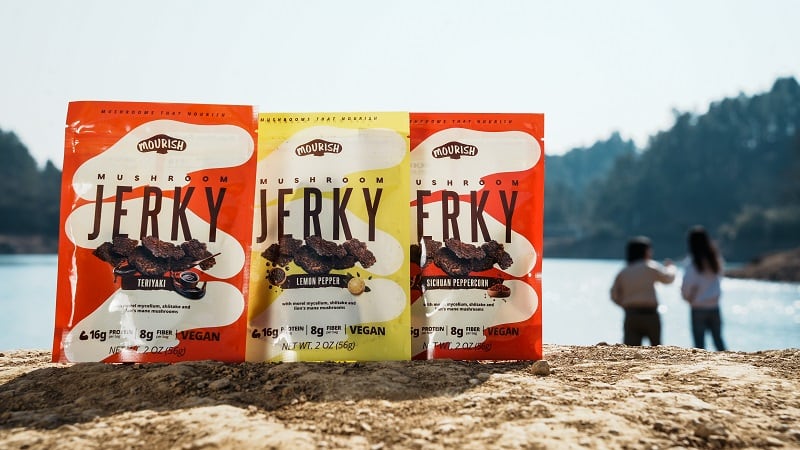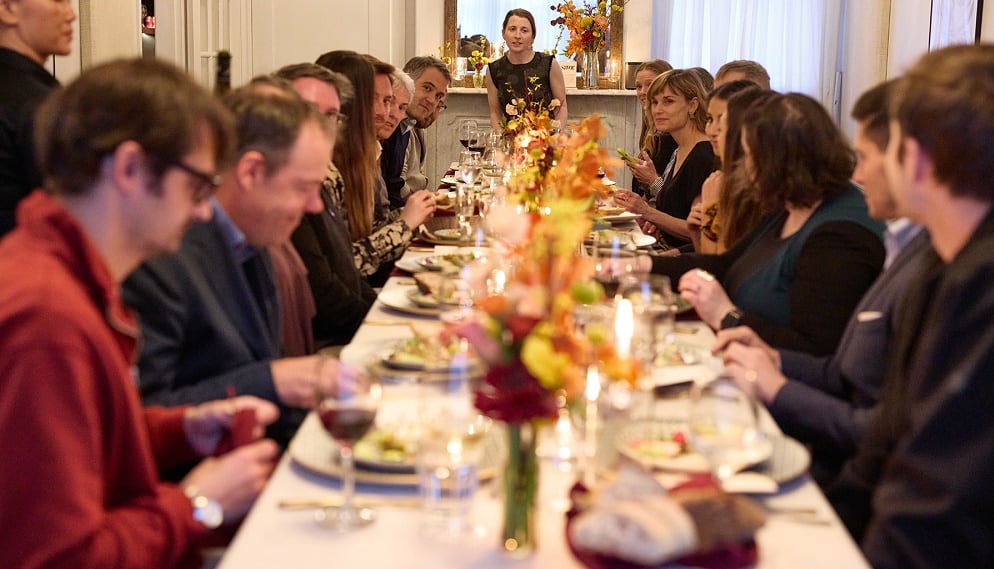Food tech company CellX is growing beyond its Chinese roots, announcing it self-affirmed the GRAS status of its preparation of morel mushroom mycelium and launching a jerky brand Mourish to demonstrate the ingredient’s potential.
Founded in 2020 in China, CellX started using morel mushroom mycelium – derived from biomass fermentation – as scaffolding for cell-cultivated meat, company CEO and Founder Ziliang Yang explained. CellX’s biotech-derived morel mushroom mycelium contains 50% protein and 25% fiber and vitamin B, iron and zinc, the company stated.
Several years into working on cell-cultivated meat, Yang realized that mycelium could stand alone as a nutritious and sustainable protein source and expanded the company’s mission to produce mycelium.
“We were super curious, so we tried the mycelium, and it tasted so good. We were also amazed by how quickly it grows, its efficiency and its nutrient profile,” Yang elaborated. “That is when we started to incubate a program within our company to work on mycelium.”
CellX pivots to an asset-light business model and the US
As part of its expansion into the US, CellX moved its headquarters from Shanghai to San Francisco with the help of $20 million in funding from venture capital firms, including Asia Pacific-based Better Bite and Beijing-based ZhenFund. Currently, CellX operates 12,000 liters of production capacity and is expanding to 30,000 liters, Yang explained.
“The long-term goal is to be a B2B supplier because that is the best way to achieve our mission of creating a more sustainable and compassionate world.”
Ziliang Yang, CEO and Founder of CellX
CellX initially launched a pilot plant to produce cell-cultivated in Shanghai, but then the company “switched to a more asset-light approach.” The food tech company tapped into spare biomanufacturing capacity in Asia, instead of building facilities to scale production, which provided capital expenditure (CapEx) benefits, he added.
“We work with some of the best fermentation co-manufacturers in the world. They already have been doing this for the past 20 years. So, they have really good quality control. They are experts in scaling up. They are experts in production. This way allows us to move faster to market and allow us to do that with much less CapEx,” Yang elaborated.
To brand or not to brand?
Food tech companies have several routes to market, including being a pure-play ingredient supplier like animal-free egg maker Onego Bio or focusing on a retail offering like US mycelium meat company Meati.
CellX is traversing a similar path as fellow food-tech companies like Equii and Oobli, which offer both branded products and ingredients through a business-to-business (B2B) channel.
Over the next several years, CellX will grow Mourish jerky brand, which is currently available through a direct-to-consumer website and later this year in retail. Beyond that, the food-tech company plans to move into the B2B ingredient space, he added.
“The long-term goal is to be a B2B supplier because that is the best way to achieve our mission of creating a more sustainable and compassionate world,” Yang emphasized.
CellX’s priority is to start generating revenues – first through Mourish and then B2B sales – as the food tech company inches towards profitability, Yang explained.
“Our priority is to grow our existing business and bring in revenue through the Mourish brand, through B2B ingredient sales and through licensing of our technology. And the goal is to break even without external capital. So, that is our No. 1 goal now,” he elaborated.





